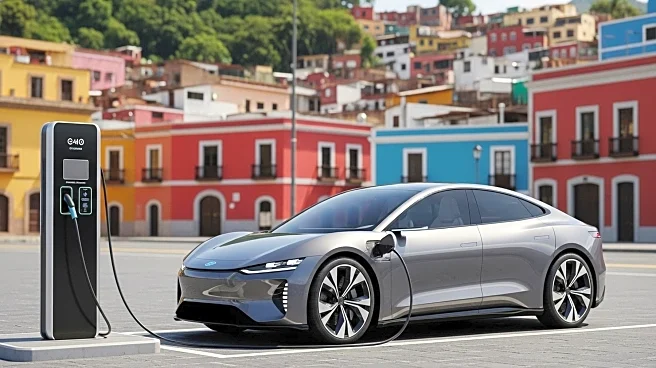What's Happening?
European automakers are positioning themselves to compete with Chinese electric vehicle (EV) manufacturers in Latin America. Despite China's dominance in the EV market, European brands are leveraging their technological advancements and competitive pricing to gain a foothold. The Renault Twingo E-Tech, with a 40 kWh battery, is priced competitively against Chinese models like the BYD Seagull. Similarly, other European models such as the Skoda Epiq and Fiat Grande Panda are entering the market with competitive pricing. This move comes as European automakers face pressure from stringent EU emissions standards, pushing them to innovate and expand their EV offerings.
Why It's Important?
The entry of European EVs into Latin America signifies a strategic shift in the global automotive industry. As Europe seeks to reduce its reliance on internal combustion engine vehicles, expanding into new markets is crucial for maintaining competitiveness against Chinese manufacturers. This development could lead to increased consumer choice and potentially lower prices in Latin America, benefiting consumers. Additionally, it highlights the ongoing global competition in the EV sector, with implications for supply chains, manufacturing, and international trade policies.
What's Next?
European automakers are expected to continue expanding their presence in Latin America, potentially increasing local production to reduce costs and comply with regional trade agreements. This expansion may also prompt Chinese manufacturers to adjust their strategies, possibly leading to price reductions or increased investment in local manufacturing. The competition could drive further innovation in the EV sector, benefiting consumers with more advanced and affordable options.
Beyond the Headlines
The competition between European and Chinese automakers in Latin America could have broader implications for global trade dynamics. As countries in the region become battlegrounds for EV market share, there may be shifts in trade policies and economic alliances. Additionally, the push for EV adoption aligns with global efforts to reduce carbon emissions, contributing to environmental sustainability goals.









